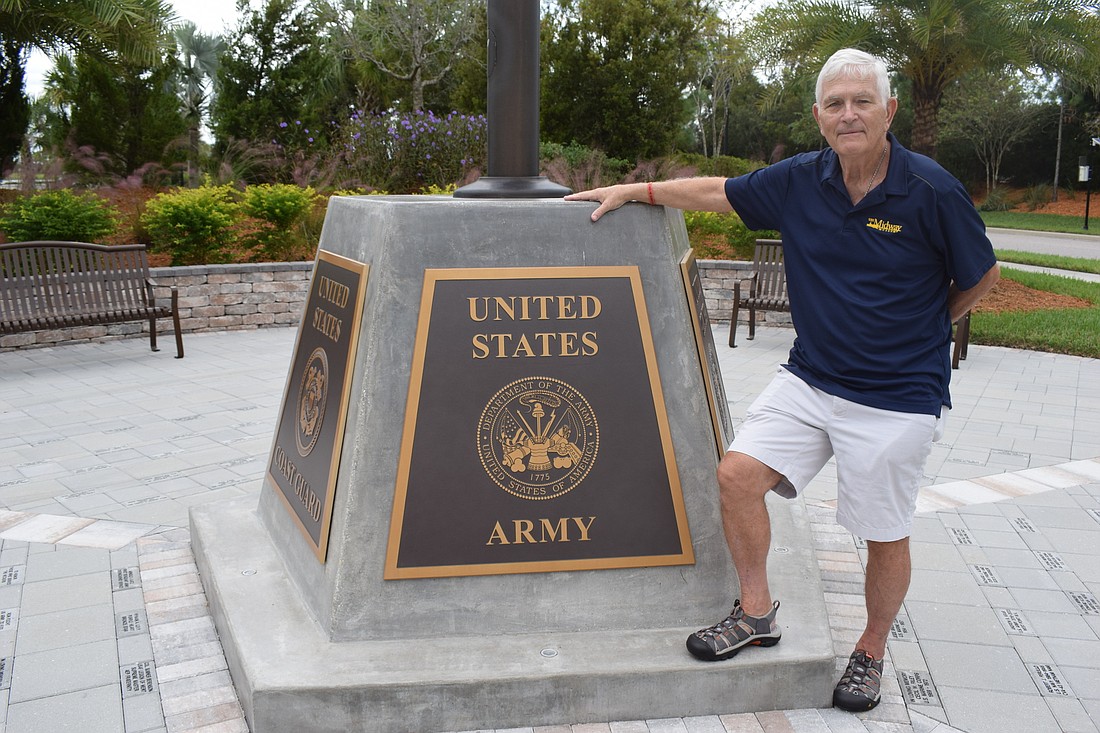- January 4, 2025
-
-
Loading

Loading

He had trained most of his life to serve the U.S. during wartime.
But after almost 25 years in the Army, Dr. Richard Hurd had never been deployed to another country.
An emergency room doctor whose father, Fritz Hurd, had served as a medic during WWI and also flew in air balloons to direct artillery fire, Hurd thought it was just meant to be.
Then in 1990, he got the call at the age of 46. The U.S. was involved in the Gulf War (Aug 2, 1990 to Feb 28, 1991) and needed a chief of emergency services at the post in Riyadh, Saudi Arabia. The Army took over the Saudi National Guard Hospital and readied to accept casualties.
Hurd, who now lives at Del Webb at Lakewood Ranch, wasn't reluctant about leaving his family and his practice to enter a war zone.
"Who better than I?" was his reasoning.
Now 76, Hurd talked about the experience with Veterans Day (Nov. 11) approaching. Del Webb will host a veteran's ceremony on 2 p.m. Nov. 8 to commemorate the holiday. Hurd will attend.
"If you are not a veteran, Veterans Day probably doesn't mean the same thing," he said. "(Veterans) all have a common bond. The camaraderie was incredible."
His deployment to Saudi Arabia lasted only four months as a cease fire with Iraq was signed in February 1991. But during his time running the Level 1 Trauma Center for the Army, his adrenalin was pumping.
"We trained hard," he said. "I put on courses for the nurses and doctors. We were ready to take casualties. It was an exciting time and I wouldn't have missed it for the world."
The Great Falls, Mont., native returned to the U.S. and eventually retired from the Army as a colonel in 1999.
He continued a legacy that started with his father's involvement in WWI. As a child, he remembered his father's passion when he talked about his experiences fighting in France and Germany. His father told him about the time he was acting as a runner, delivering messages at the front lines, when he felt something whiz past his head in a bunker. It was a piece of shrapnel that lodged into the timbers that made up the back wall of the bunker.
"Dad was a tough guy," he said.
Richard Hurd's son is a tough guy, too. Army Maj. Jason Hurd, who lives in Missoula, Mont., just returned from a deployment in Afghanistan as a medic.
"He is a vascular surgeon, but he went over as a general surgeon," Richard Hurd said. "They can set up 100 yards from where the action is."
After his father's experiences in WWI and his own, one might think he wouldn't want to see his son in a war zone.
"He is a great surgeon," Richard Hurd said of his son. "Why not him?"
While the Saudi Arabia deployment was Richard Hurd's only overseas activity, he did face some stressful situations in the U.S. He served with thousands of other soldiers who stood in front of the Pentagon in Arlington, Va., as an estimated 50,000 Vietnam War protestors marched upon the U.S. Department of Defense headquarters Oct. 21, 1967.
"We were elbow-to-elbow," he said. "There were some nasty people (among the marchers). If you think the country is a mess now, you should have been around then."
Approximately 700 people were arrested that day for trying to break through the barricade or for throwing debris at the soldiers.
It was quite a different scenario when he returned from Saudi Arabia.
"I was treated like a hero," he said with a smile.
Hurd moved to Lakewood Ranch from San Diego in May 2019. He loves the neighborhood's Association of Veterans and Military Supporters that has more than 200 members.
"This community is incredible the way it supports the veterans," he said.
He does his part as well.
"I saw a guy here who has a Purple Heart," Hurd said. "He was injured in Vietnam. I will salute that guy every time I see him."